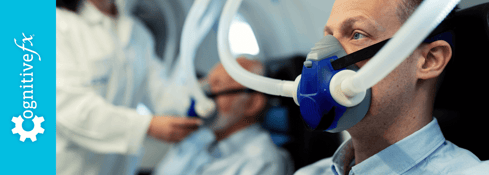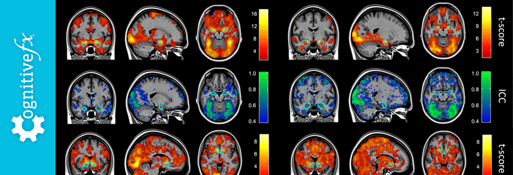Can One Treat the Long-Term Effects of Concussion?

About a year ago I did an interview over the phone with a sports-talk radio show in Texas. The topic was concussion in high school football (Texas is all about high school football). I talked about treatment for long-term concussion effects and how new therapies are available that can be extremely effective. I also mentioned research that shows treatment effectiveness even when the concussion (or concussions) happened years earlier.
After I hung up, the host, who is an MD and a very smart guy, commented that my claim was a bit controversial because I was suggesting that treatment could reverse the effects of Chronic Traumatic Encephalopathy (CTE). I realized that I hadn’t been clear about what I meant by “long-term concussion effects,” and that I was referring to Post Concussion Syndrome (PCS), not CTE. My goal is to make that clear now.
CTE and PCS are two potential long-term consequences of concussion. CTE has made big headlines, while PCS has not.
Chronic Traumatic Encephalopathy (CTE)
CTE, in case you are unfamiliar with the term, is a devastating neurodegenerative disease with symptoms similar to Alzheimer’s Disease. From a media perspective, there has been some controversy about whether concussions lead to CTE later in life.
As a neuroscientist, my opinion is that there is compelling evidence for a connection between concussion and CTE, and I’ll leave it at that. Importantly, I wish to state here that there is no evidence that I know of that shows any treatment that will reduce the likelihood of CTE after concussion, contrary to what the radio host (understandably) mistook me to say.
Post-Concussion Syndrome (PCS)
PCS is an entirely different matter. While PCS has received far less attention in public awareness than CTE, it should not be underestimated.
While most concussions resolve within a few days, 15-20% of people suffering concussion can have significant symptoms lasting months and even years—this is PCS. It can be highly debilitating and disruptive to normal life functioning. Moreover, because it is often ignored or met with skepticism by some medical practitioners, people suffering from PCS encounter additional frustration seeking proper treatment, often in the face of dwindling support from friends and family.
Treatment for PCS
It might be surprising that such extreme symptoms can be the result of a ‘mild’ head injury, so PCS skepticism is perhaps understandable. However, from the perspective of neurophysiology it is not at all surprising. In the scientific community, there has been substantial progress over the last decade in understanding the underlying causes of PCS.
One of the primary issues appears to be a disruption in the way that brain cells manage their own blood supply. In this state, brain cells are healthy for the most part, but never quite functioning at full capacity. The good news is that this is something that can be addressed in treatment, even when this kind of blood supply disruption has been going on for a long time.

About the author
Dr. Mark Allen, Ph.D.Dr. Mark D. Allen holds a Ph.D. in Cognitive Science from Johns Hopkins University and received post-doctoral training in Cognitive Neuroscience and Functional Neuroimaging at the University of Washington. As a co-founder of Cognitive Fx, he played a pivotal role in establishing the unique and exceptional treatment approach. Dr. Allen is renowned for his pioneering work in adapting fMRI for clinical use. His contributions encompass neuroimaging biomarkers development for post-concussion diagnosis and innovative research into the pathophysiology of chronic post-concussion symptoms. He's conducted over 10,000 individualized fMRI patient assessments and crafted a high-intensity interval training program for neuronal and cerebrovascular recovery. Dr. Allen has also co-engineered a machine learning-based neuroanatomical discovery tool and advanced fMRI analysis techniques, ensuring more reliable analysis for concussion patients.







